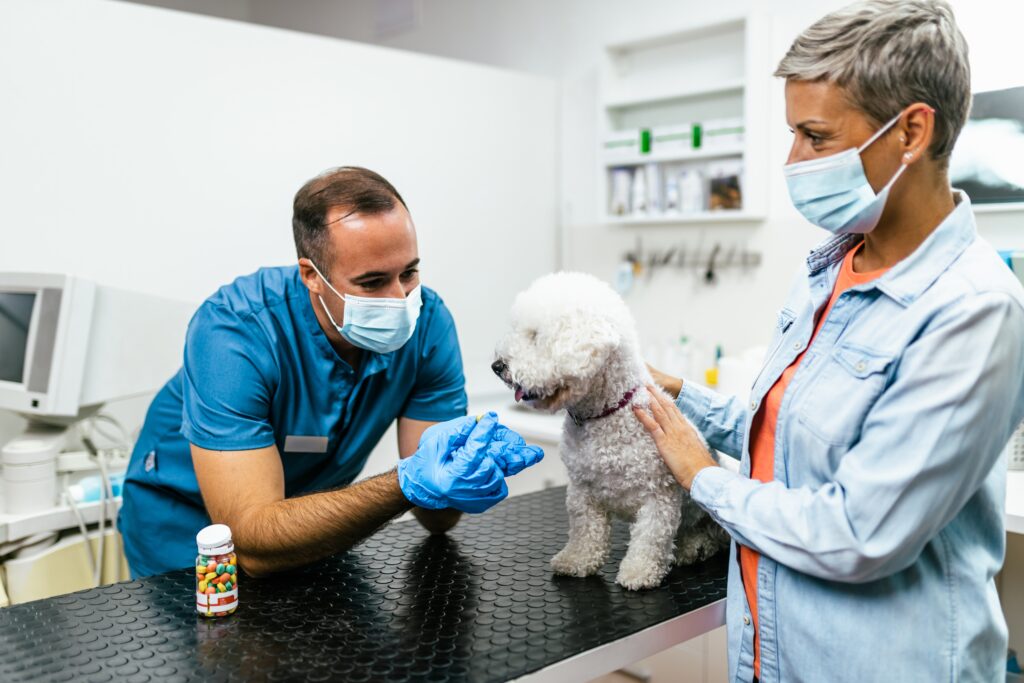Dental Care for Pets

Dental disease is commonly seen in our pets, and it is just as painful as it is in humans. However, because they cannot communicate their discomfort in the same way we would, if is often overlooked.
Regular veterinary care is important to pick up early signs of dental disease and dealing with it sooner rather than later.
Did you know:
- Dogs have 42 teeth- Dental chews can help but don’t be lulled into a false sense of security as they are not a replacement for daily brushing and regular veterinary examinations.
- Cats have 28 teeth- Although it is possible, many people struggle to brush their cats’ teeth and although dry food can help, and there are specific products marketed, it is even more important that your cat receives regular veterinary examinations to identify early signs of dental disease.
When choosing dental treats and chews for your pets, look out for the Veterinary Oral Health Council (VOHC) Accepted stamp.
- Rabbits also have 28 teeth- They have, what we call, “open rooted” teeth and constantly grow throughout their life. It is therefore extremely important that they are fed on an appropriate diet, where the majority is roughage (grass/hay) to simulate what they would eat in the wild and ensure they spend a large proportion of their day chewing and thus keeping their teeth worn down to a healthy level.
Covid and Changes to How Vets Work
Pets ownership has boomed over the past 18 months as people’s circumstances have changed. Like many industries, the veterinary industry is going through a time of enormous change and unfortunately, we are struggling to keep up with the increase in demand. With the time needed to train new veterinary staff and the changes linked to Brexit, there is no quick solution. This has meant that many veterinary practices have had to change their ways of working to ensure they are able to deal with the most urgent work.
Although I would never want to discourage anyone from pet ownership, in the current climate I would want to encourage people to bear this in mind when considering the prospect.
It is worth contacting your local practice to check they are taking on new clients and patients as many practices have had to temporarily close their books.
With many changes and uncertainty in peoples lives, there has been an increase in pets finding themselves in the care of charities and rehoming centres.
If you are considering pet ownership but are not sure about the long-term commitment, consider becoming a dog walker or a foster for one of the amazing charities.






